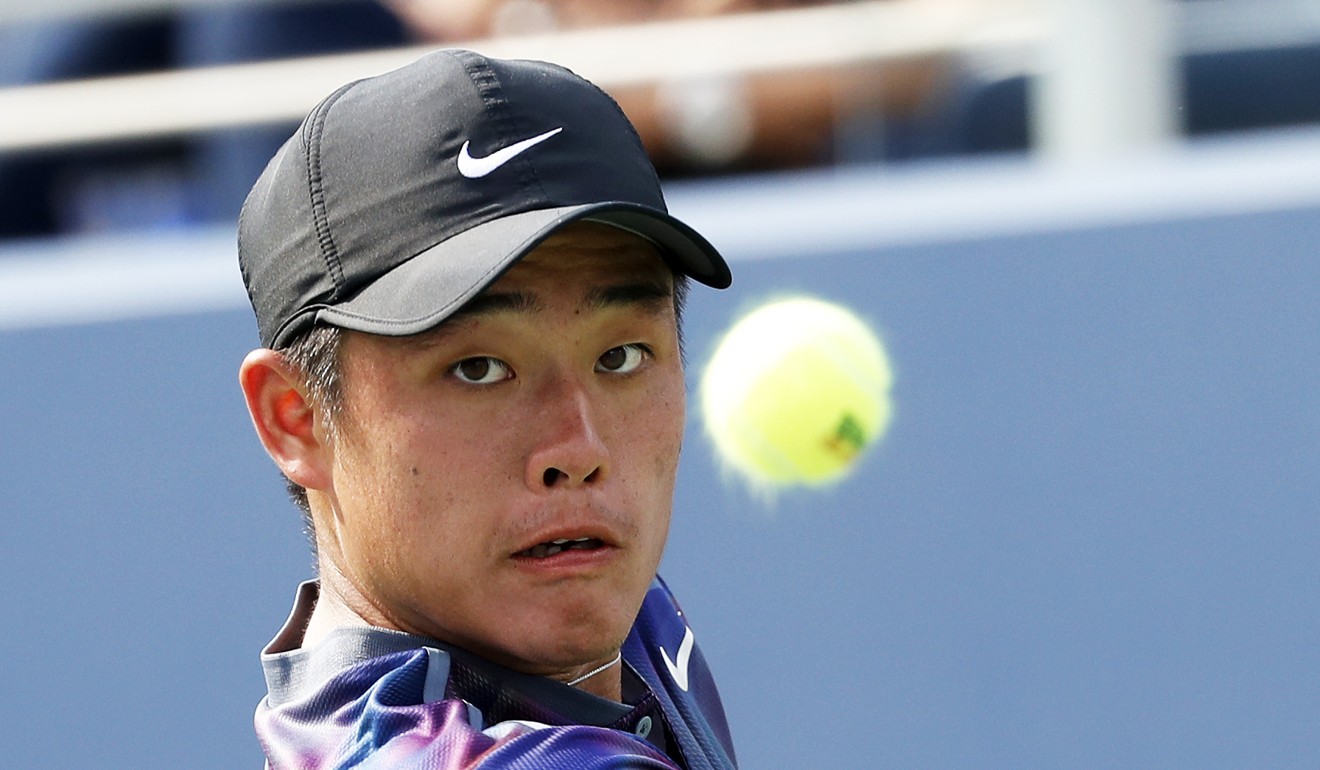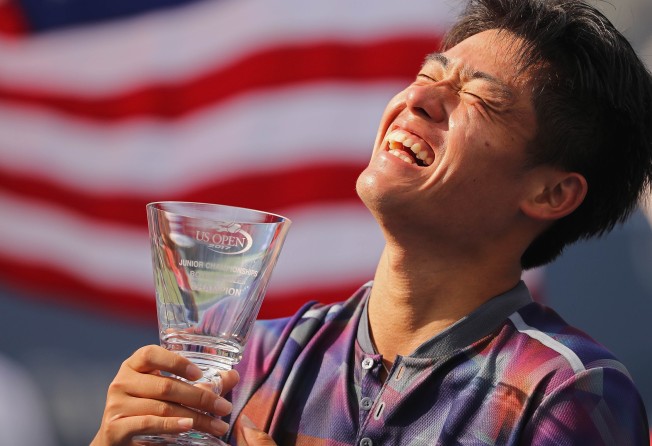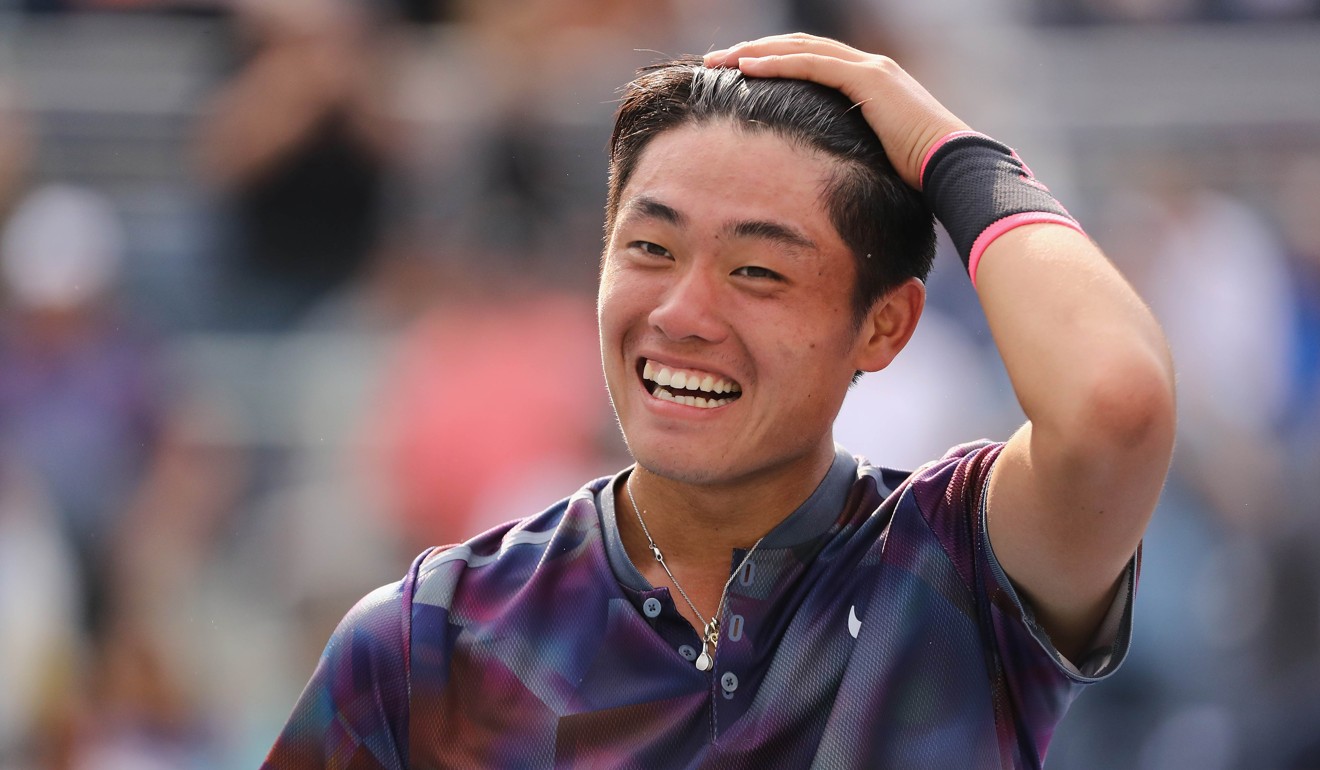
Why China tennis teen Wu Yibing has what it takes to make a Li Na-style impact
The 17-year-old US Open junior champion has all the goods to make it to the top on and off the court, say those in the know

Wu Yibing won the US Open juniors singles and doubles titles last weekend, a feat that received 43 seconds of coverage on Xinwen Lianbo, China’s flagship news programme.
That may not sound like much, but is actually whopping according to an article on web portal Sina: basketball star Yao Ming’s retirement only got 53 seconds and the only individual sporting success to get more than a minute in recent memory was Li Na’s French Open win.
It’s not just CCTV paying attention: Wu, 18 next month, is the first mainland Chinese player to win a junior grand slam; the ATP, plus major sports brands and marketing companies, will be desperate for him to star at senior level.
Since Li retired, Chinese tennis has had no high-profile player to attract fans and sponsors. No Chinese man has ever broken the top 100; that’s Wu’s immediate goal and those in the know say he has what it takes.

Success at junior slams is no guarantee of senior success: legend Stefan Edberg won all four in 1983 but since then only four male junior slam winners have won a senior major: Roger Federer, Andy Roddick, Andy Murray and Marin Cilic.
Of the 46 boys who won a slam since Cilic in 2005, just 11 are in the men’s top 100. Alexander Zverev (4) and Grigor Dimitrov (9) are the only ones in the top 10; most would back them to win senior slams soon.
Wu is now 496 in the senior rankings, with only five Chinese higher, and should climb after an impressive performance at the Shanghai Challenger this week.
“He’s a good player with a big game – to be 496 in world as a junior is terrific and he’s started the transition already,” says Mike Walker, director of player development at the Hong Kong Tennis Association, who has seen a lot of Wu at junior tournaments with his Hong Kong players.
“That shows his game can stand up to senior tennis – now it’s just a case of working harder, playing more, gaining experience and having belief.”

Amine Boustani, head tennis coach at the Hong Kong Sports Institute, concurs.
“Having seen him play and compete and talked about him with various coaches and people who know about the game, he does have potential to get to the top and is on the right path.
“He’s physically strong, got weapons, moves well, is mentally strong and if he stays healthy and focused and determined which I think he is, there’s no reason he can’t make it.”
Hong Kong’s Jackie Tang beat Wu at a top junior event in August last year, before narrowly losing to Taiwan’s Hsu Yu-hsiou in the final. Hsu has won the Wimbledon, Australian Open and US Open doubles titles this season, the last with Wu.
Walker and Boustani hope the fact their peers are making such an impact can boost Hong Kong players too.
“It gives the region a lot of confidence that players can go out on the big stage and compete with the best in world,” says Walker.
No.2 Wu Yibing d. top seed Alex Geller 6-4, 6-4 to become the first Chinese player to win the US Open boys' singles title #usopen pic.twitter.com/yZS2W5pWZn
— US Open Tennis (@usopen) September 10, 2017
“These guys are full-time tennis players and in Hong Kong now we’ve got more full-time players than ever – two of the men, Kevin Wong and Brian Yeung, won our first ever tennis medal at the World University Games last month, and the women won promotion to Group 1 in the Fed Cup recently.”
Wu, from Hangzhou, took up tennis as a four-year-old because his parents wanted him to lose weight and the badminton net proved too high. Like Li Na, his success seems largely in spite of China’s sporting authorities, though state media is keen to credit Zhejiang officials.
His parents took him out of primary school and sent him to tennis academies in Beijing and then Spain. Wu’s mother estimated that they had spent millions of yuan on training, although the family is not believed to be wealthy.
Meet the fresh face of tennis, looking to begin his ascent with #ATPChallenger success.
More on Wu Yibing: https://t.co/9n7NQlMJGo pic.twitter.com/krdmXPv3i0
— ATP Challenger Tour (@ATPChallenger) September 14, 2017
“A lot of our players have the same skill, but want to focus on academics or a mix,” says Boustani. “Yibing made the decision early to focus only on tennis and you can tell the effect.
“Especially if you’re from China, you have to go to Europe, that’s the Mecca of tennis.”
Boustani reckons Wu has everything to be a hit off the court too, with the marketing men surely circling.
“He’s got the looks and a good attitude and personality,” says Boustani. “He’s Mr Cool, you’ll see him walking around the hotel with his Golden State Warriors shirt and the hat on back-to-front, all the gear, so he’s going to be a product.
“[But] even at the National Games [where Wu led Zhejiang to a silver medal], he was playing tough matches then immediately going back out to train some more – you can see his commitment.”
So could he have a similar impact in China as Li Na? He hopes so.
“She’s the first one to give us hope; real hope that young players can get to that level,” Wu told the ATP website this week.
And who knows, maybe some day he’ll even break the minute mark on Xinwen Lianbo.